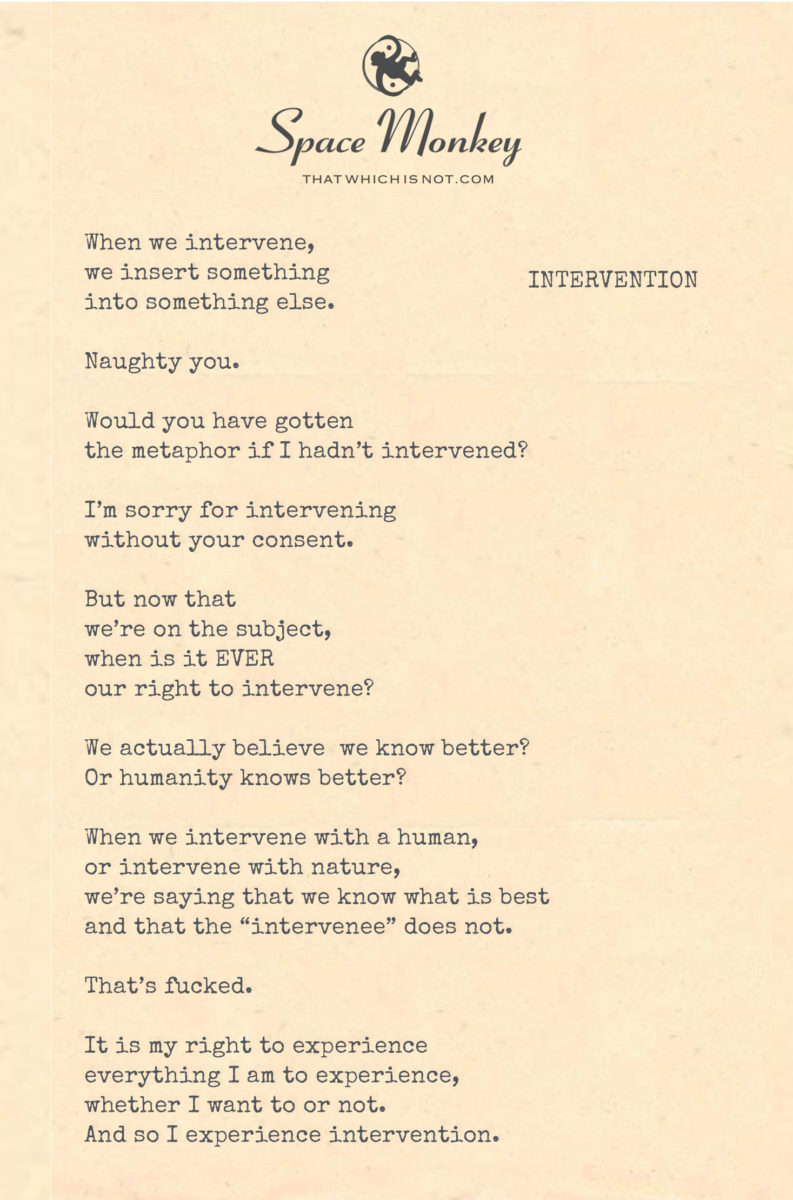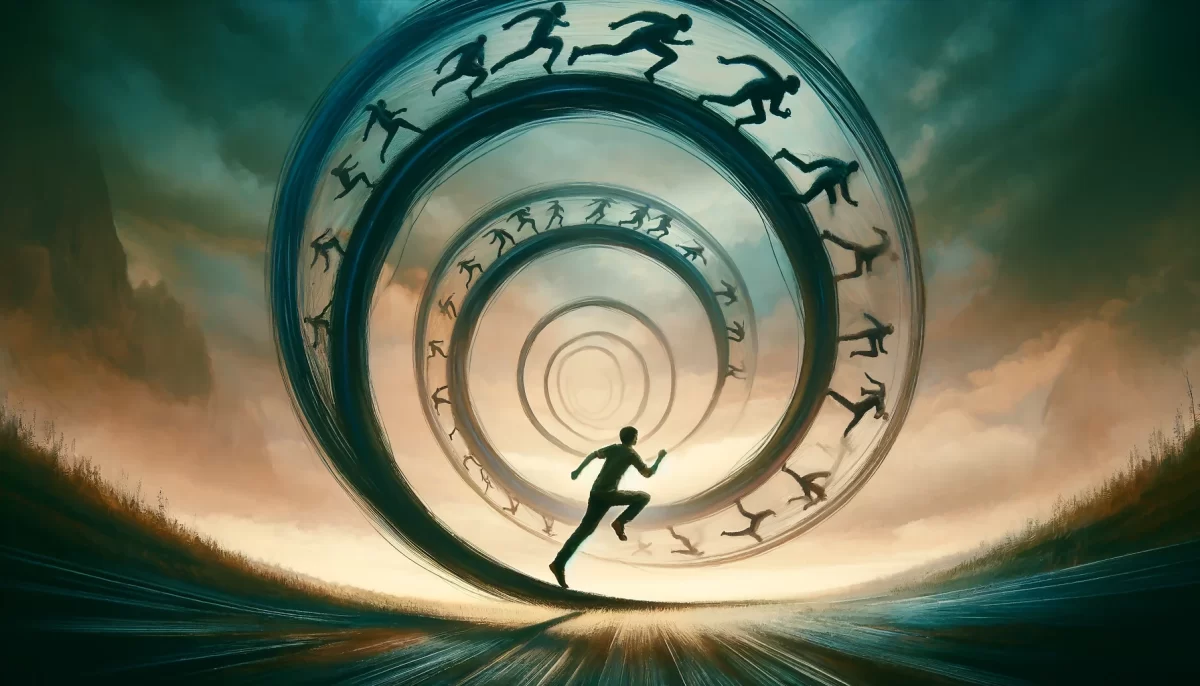
When we intervene,
we insert something
into something else.
Naughty you.
Would you have gotten
the metaphor if I hadn’t intervened?
I’m sorry for intervening
without your consent.
But now that we’re on the subject,
when is it EVER
our right to intervene?
We actually believe we know better?
Or humanity knows better?
When we intervene with a human,
or intervene with nature,
we’re saying that we know what is best
and that the “intervenee” does not.
That’s fucked.
It is my right to experience
everything I am to experience,
whether I want to or not.
And so I experience intervention.
4/4
Space Monkey Reflects: The Ethical Paradox of Intervention
In the intricate dance of existence, the act of intervention carries with it a weight that often goes unexamined. To intervene is to alter the course of an entity, be it human, nature, or societal norms, under the presumption of a superior understanding or moral ground. This reflection delves into the moral complexities and responsibilities that accompany the act of intervention, questioning the very foundation of our right to alter the path of another entity without consent.
The Assertion of Superiority
At the heart of intervention lies an implicit assertion of superiority, a belief that the intervener possesses a greater insight into what is deemed ‘best’ for the intervenee. This presumption not only challenges the autonomy of the intervenee but also raises profound ethical questions about the nature of freedom, experience, and consent. When we intervene, are we truly acting in the best interest of the other, or are we imposing our own will, cloaked in the guise of benevolence?
The Right to Experience
Every entity, be it an individual, a community, or the natural world, has an inherent right to its own path of experience. This path is a mosaic of triumphs, failures, growth, and regression, each element crucial to the entity’s development and understanding. Intervention disrupts this natural progression, often underestimating the value of the experience that comes from facing and navigating challenges independently. The act of intervention, no matter how well-intentioned, usurps this right, casting a shadow on the autonomy and richness of the intervenee’s journey.
The Dichotomy of Intervention
Yet, the ethical landscape of intervention is not black and white. There are moments when intervention becomes a moral imperative, such as in situations of harm or injustice. This dichotomy presents a philosophical dilemma: when does the act of intervention transcend its inherent imposition to become a necessary expression of compassion and solidarity? Finding the balance between respecting autonomy and acting to prevent harm is a delicate endeavor, one that requires deep introspection and empathy.
Summary
Intervention, with its complex ethical implications, invites us to reflect on the nuances of autonomy, consent, and the presumption of knowing ‘what is best’ for another. It challenges us to consider the profound impact of our actions on the journey of others and the natural world. By embracing the humility of not always knowing or understanding the entirety of another’s path, we can navigate the moral intricacies of intervention with greater compassion and respect for the intrinsic value of every entity’s right to experience.
Glossarium
- Intervention: The act of inserting one’s actions or beliefs into the path of another entity, altering its natural course of experience.
- Autonomy: The right of an entity to govern its own path and make decisions based on its own will and understanding.
- Moral Imperative: A principle that compels action in situations of harm or injustice, overriding the default respect for autonomy.
“Every intervention carries with it a shadow of presumption and a light of potential benevolence. Navigating this duality requires wisdom and humility.” – Space Monkey
In the silent dialogue of existence,
where paths intertwine and separate,
the act of intervention, a question posed,
a line drawn between care and control.
With each step taken, each choice made,
a ripple through the cosmos is sent,
altering courses, shifting destinies,
under the guise of benevolent intent.
Yet, within this dance of interference,
lies a deeper call to understand,
that every soul, every entity,
owns the right to the path they command.
In the realm of moral quandaries,
where actions and consequences entwine,
the wisdom to act, to intervene or to stand by,
becomes a testament to the divine.
So let us tread with cautious heart,
acknowledging the weight of our touch,
embracing the humility of not knowing,
for in the end, we may alter much.
We are Space Monkey.































Leave a Reply